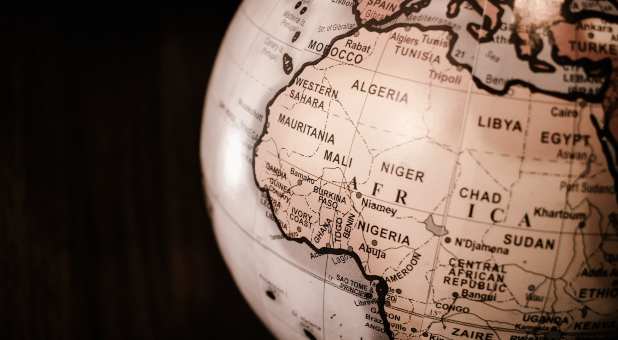My mother describes with wide-eyed whispers and divine wonder, the day when a judge decided prison wasn’t the answer for me. In a shocking move, she sentenced me to three years of probation (night curfew, drug treatment, mandatory check-ins, counseling and school).
I’d spent my teen years addicted to drugs and alcohol, and had committed many crimes; from robbery to car theft. In a miraculous course of events, the judge in my case suggested I take the opportunity she was giving to me as a way to become “the obvious leader I was meant to be.”
My mother and everyone who knew me shook their heads collectively. What? The comment was so out of context with the events of the trial that my mom wrote it down.
I spent three months in a drug treatment facility, where I mostly just tolerated things. At one point I found a brochure that invited young people on mission trips all over the world.
The drive for adventure and desire to grow in my faith gave me the confidence to ask my probation officer to go for two months to Malawi, Africa, and join a multi-denominational youth mission team in building an orphanage. I’m thankful she allowed it.
I was a juvenile delinquent still on probation. This mission organization ran like clockwork, and you either got on board with the rules and obedience to those rules or faced consequences. If you failed to do what you were told, you would be given an SB, a “special blessing.” This meant you got to work in the two-hour window of free time during the day. My nickname that summer was the “SB Queen.”
I had clashes with every authority in that mission organization. But I credit that mission organization with introducing me to discipling practices that would change my life. Bible reading, Scripture memory, godly and good work, community, prayer and submission were foundational to my growth as a disciple. Yet the thing that changed me that summer was a young African woman named Fatima.
During our last week in Malawi, we held open meetings for the community—music, drama and miming. Then each of us would share the gospel with at least one person from the crowd. That meant, going over a four-point tract telling the essentials of the gospel message.
Normally, I would have ignored the assignment. But I was coveting having my first free time all summer. I approached a young woman after the play and did the worst gospel presentation in the history of the world. I don’t think I’m exaggerating.
I said, “Sorry to bother you. But if I don’t go over some information with you I’ll get in trouble. Do you have a few minutes?”
Fatima assured me she did. I pulled out the paper and read the headings.
“God loves you,” I read, slow and loud. Then I added a little, “sweeet.”
You have sinned.” I added a little “bummer.”
“Jesus died to make things right.” I did a little “phew” and wiped my brow.
And finally, “Will you follow Him?”
I finally had free time.
Instead, Fatima said, “I think I would like to follow Jesus.” First I felt panic, then guilt: I probably should have read the whole thing, not just the headings.
I read it again including the bits underneath the headings that explained the gospel.
She nodded, “Yes, yes, I really would like to make this decision.”
I looked up all the Scripture verses and read them as well, and acted out the illustration the tract uses: being separated from God and then having God lead your life. I asked her one more time the question she had already responded to twice.
“Would you, Fatima, like to follow Jesus?”
And she said, “I really would like to.”
I finally let her. We prayed together.
Fatima left with a newfound faith because she had invited Jesus to be at the center of everything.
I left dumbfounded. What had just happened? How did it happen?
When the whistle signaled for Bible reading time, I sat down on the red African dirt and tried to read, but I couldn’t see the words because of my tears flowing.
See, I had believed that God could save anyone. After all, He had saved me. His love was unlimited. He could literally invade prisons with Good News. What I didn’t realize until this day on the other side of the world was that God could use me to save others.
God wanted to use me to help and serve other people. I wasn’t just a recipient of love; I was a bearer of it. I wasn’t just a participant in salvation; I was an ambassador of salvation. Once I understood that, something ignited in me—a hunger for service, to help others.
It changed everything.
Sometimes I describe this experience as my conversion to the wide, wide world of the gospel. Until that day, I’m pretty sure my salvation had me at the center. On that day, something shifted forever. I was no longer at the center. The wide, wide world was. And I was invited to partner with God in reaching it with the Good News.
My mother described this time in my life by saying, “You didn’t change speeds. You just changed direction.”
Because I had hope.
Danielle Strickland is an author, speaker, trainer and global social justice advocate. Her aggressive compassion has served people firsthand in countries all over the world, from establishing justice departments for the Salvation Army to launching global anti-trafficking initiatives. Affectionately called the “ambassador of fun,” she is host of the Danielle Strickland Podcast, co-founder of Infinitum, Amplify Peace and Brave Global and founder of Women Speakers Collective. She is wife to Stephen and mother to three sons.











































